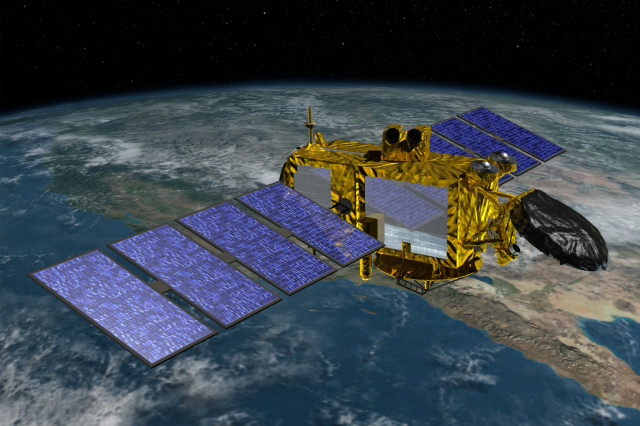
Colorized transmission electron micrograph (TEM) revealed some of the ultrastructural morphology displayed by an Ebola virus virion. (CDC/Frederick Murphy)
Ebola Antibodies Could Lead to Effective Vaccines and Therapies
According to the Centers for Disease Control, the 2014 West African Ebola Epidemic killed 11,316 people with about 28,638 suspected, probable, and confirmed cases of the deadly disease.
The worst outbreak of Ebola in history prompted researchers from around the world to work on developing ways to prevent and cure this viral scourge.
Now, scientists from Vanderbilt University Medical Center, in Tennessee, and the University of Texas Medical Branch in Galveston have isolated antibodies from Ebola survivors and found that they can kill several strains of the virus.
They say their findings could lead to exciting new therapies that can protect people from Ebola and treat those who already have the virus.
The researchers say that several experimental Ebola antibody vaccines and therapies are already in development.
NASA Launches New Weather/Climate Satellite
An international oceanographic collaboration has a new tool to help it monitor the rise in global sea level after the successful launch of a meteorological satellite.
A Space X Falcon 9 rocket carrying the Jason-3 spacecraft blasted off from Vandenberg Air Force base in California recently.
The spacecraft will help continue efforts to measure changes in global ocean height by satellite that began in 1992 with the Topex/Poseidon mission.
The Jason 3 mission is a collaboration between NASA, the National Oceanic and Atmospheric Administration, the French space agency, CNES and the European Organization for the Exploitation of Meteorological Satellites.
Over the more than twenty years since these satellite measurements began, researchers say that the world’s sea level has risen by 70 millimeters with an annual average increase of about 3 millimeters a year. Mission officials say that the new satellite will also improve weather, climate and ocean forecasts.

Young woman expresses her aversion to getting jabbed with a needle as a medical technician draws blood (Photo: US Navy)
Bacterial or Viral? Blood Test Helps Determine Infection Type
A team of experts at North Carolina’s Duke University are tweaking a simple new blood test they’ve developed that will allow medical professionals to determine whether a respiratory illness stems from a viral or bacterial infection.
Bacterial infections are usually treated with antibiotics which are ineffective against viral infections.
The test will help doctors pinpoint the appropriate antibiotics to fight the infection, if it’s bacterial in nature, and consider other treatments if caused by a virus.
The scientists who are developing this blood test hope that it will help stem the trend of over-prescribing antibiotics, which some say have led to an increase antimicrobial resistant bacteria strains.
One of the lead researchers, Dr. Ephraim Tsalik, M.D., PhD., an assistant professor of medicine at Duke University said that about three-fourths of respiratory patients are prescribed antibiotics despite the fact that the majority have viral infections.

Japanese researchers have come up with a way to measure heartbeats remotely, in real time, and under controlled conditions with as much accuracy as electrocardiographs. (Kyoto University)
New Device Measures Heartbeat from a Distance
Japanese scientists say they’ve developed new technology that will allow a patient’s heartbeat to be remotely taken and measured, without intrusive instruments such as stethoscopes and body sensors.
Working with the Panasonic Corporation, the researchers from Kyoto University Center of Innovation say under the right conditions heart information gathered with their remote sensing system is as accurate as an electrocardiograph.
The researchers say their new technology will help lead to the development of a number of similar devices that will remotely gather a wide range of medical information from patients as they go about their normal day.
Hirouki Sakai, one of the researchers who created the new device says that his team tried to come up with something that would allow people a way to monitor their body in a casual and relaxed environment.
The researchers say that remote sensing technology might encourage people to keep a constant eye on their own health.
Sounds Communicate Emotions Better Than Words
Canadian researchers have found that non-verbal human sounds of emotion such as a scream of anger or alarm, a cry of sadness or a laugh of joy are able to better communicate feelings than spoken words.
Writing in a study published by the journal, Biological Psychology, the scientists from Montreal’s McGill University also discovered that our brains respond in just one-tenth of a second to these non-spoken vocalizations.
They say our ability to quickly recognize the non-spoken sounds of emotion was a matter of human survival long before language was even developed.
Working with 24 research subjects, the scientists found that sounds of happiness such as laughter registered quicker with the volunteers than either the sounds of sadness or anger.
But, angry sounds and speech produced longer lasting brain activity in their subject’s brains than either happiness or sadness. The researchers say that this indicates the brain focuses more on the sounds of anger so it could help warn of potentially threatening situations.























Comments are closed.